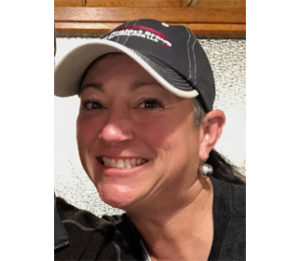As the world becomes more urbanized, we have had to make processing and packaging food more efficient. Today, automation engineering has become a necessary part of the food processing plant design. According to a report, 96% of small packaging companies are already using automation.
Manual systems increase the number of errors during packaging and processing. They can also trigger the problem of high employee turnover. Small organizations can take advantage of the solutions offered by an automation engineering company. Here’s how SMEs are benefiting from the advances in automation technology.
Enhanced Automation Efficiency
Modern automation systems are more flexible and efficient. Advancements in technology have led to the development of better sensors, which has been useful for error reduction. Programmers are always developing better algorithms. They develop processes that are stable and predictable in the complex and sensitive environment of the food industry.
Old systems had large parts and, therefore, needed to be in an enclosure to guarantee worker’s safety. Some robots today are flexible and small enough to work safely alongside humans. They improve collaboration and increase processing speed without increasing the rate of errors. Scientists have come to realize combining human input and efficient algorithms can yield exponential results.
Cost-Effective Deployment
Seasonal businesses in the food and beverage industry may find traditional automation models to be too expensive and impractical. Such inflexible systems wouldn’t cope in an environment where the production volumes keep fluctuating.
The configuration of modern systems is more flexible than with robotics in traditional plants. They can handle varying requirements for small businesses in the food and beverage industry. The challenge for SMEs is often how to deal with a large number of products with only marginal volumes.
Modern automation features smaller, lighter parts thanks to developments in material design. The electronics components that control the robotic mechanism are continuously getting smaller. These factors enable an automation engineering company to develop robots that can fit plants with a variety of dimensions.
Training
Also, sophisticated programming can allow an automation engineering company to design robotics with simple configurations. The simplicity of such systems reduces a significant portion of the expenses small businesses would incur training staff to maintain equipment.
Robots that are currently integrated into the food processing plant designs are uncomplicated with fewer parts. As a result, they do not require as many security features as traditional systems. That means the automation devices have fewer components that would require regular servicing. A lot of maintenance work is simple enough to completed by in-house technicians.
Remaining Competitive
As more small businesses turn to automation, eventually, it will be hard for other entrepreneurs to ignore it. Automation engineering is becoming more accessible, thanks to the reduction in the cost of deployment and equipment. With more than 90% of SMEs in the packaging industry using automated systems, businesses will have to adapt to remain competitive.
Modern systems are becoming more flexible, lighter, and smaller, making it more accessible to small businesses. They can fit into a wide range of food processing plant designs. Today, SMEs can reduce problems such as employee turnover and errors without worrying about high investment costs. Feel free to contact our automation engineering company’s helpdesk for any questions or queries.


 Pamela began her professional career in the broadcast industry while attending Tarleton State University. After graduating with a B.S. in Speech Communication in 1997, she worked at several radio stations in management roles focusing on continuity, music and production as well as serving as an on-air talent continuously for more than ten years. In 2010, Pamela accepted a position as the Assistant Marketing and Development Director for the Eisemann Center in Richardson, TX. Helping to promote, market and develop the City of Richardson’s performing arts center, she succeeded in implementing and managing all social media marketing as well as creating and directing a first-ever student art exhibit, further strengthening her marketing and organizational talents.
Pamela began her professional career in the broadcast industry while attending Tarleton State University. After graduating with a B.S. in Speech Communication in 1997, she worked at several radio stations in management roles focusing on continuity, music and production as well as serving as an on-air talent continuously for more than ten years. In 2010, Pamela accepted a position as the Assistant Marketing and Development Director for the Eisemann Center in Richardson, TX. Helping to promote, market and develop the City of Richardson’s performing arts center, she succeeded in implementing and managing all social media marketing as well as creating and directing a first-ever student art exhibit, further strengthening her marketing and organizational talents. Jason Krueger is the Director of Ranch and Real Estate Development for The Project Group Consulting, LLC. Jason has been managing and developing ranches for greater than 14 years, and has extensive sales management experience in the construction industry dating back to the late 90s. He is also a Wildlife Biologist/Ecologist with a B.S. in Wildlife Ecology from Texas A&M University in College Station.
Jason Krueger is the Director of Ranch and Real Estate Development for The Project Group Consulting, LLC. Jason has been managing and developing ranches for greater than 14 years, and has extensive sales management experience in the construction industry dating back to the late 90s. He is also a Wildlife Biologist/Ecologist with a B.S. in Wildlife Ecology from Texas A&M University in College Station. Bryant began his career at Crepaco warehouse in parts distribution and pump assembly. Then he progressed to field installation for process and ammonia systems where he oversaw welding and fitting both sanitary tubing and ammonia piping systems.He then moved to San Antonio, spent a year as a contract fabricator with H-E-B Foods working for Sanitary Welding Services. At the end of his contract he returned to the DFW area with Alloy Equipment doing installation, crew management, and scheduling. There he remained through the buyout by Statco Fabrication and Engineering, which resulted in his 25 combined years with them moving into engineering and sales departments.
Bryant began his career at Crepaco warehouse in parts distribution and pump assembly. Then he progressed to field installation for process and ammonia systems where he oversaw welding and fitting both sanitary tubing and ammonia piping systems.He then moved to San Antonio, spent a year as a contract fabricator with H-E-B Foods working for Sanitary Welding Services. At the end of his contract he returned to the DFW area with Alloy Equipment doing installation, crew management, and scheduling. There he remained through the buyout by Statco Fabrication and Engineering, which resulted in his 25 combined years with them moving into engineering and sales departments. With more than 25 years in the food and beverage industry and extensive experience as a project manager, Tony has planned and led multi-million dollar projects relating to system upgrades, equipment installation, water quality, validations and process improvements. Some of his areas of expertise include project planning, quality assurance, process analysis, manufacturing systems, process design and problem resolution.
With more than 25 years in the food and beverage industry and extensive experience as a project manager, Tony has planned and led multi-million dollar projects relating to system upgrades, equipment installation, water quality, validations and process improvements. Some of his areas of expertise include project planning, quality assurance, process analysis, manufacturing systems, process design and problem resolution. Tim is an electrical and control systems engineer with more than ten years of experience in a wide variety of industries. Project experience includes working with clients in the water/wastewater fields, pharmaceutical, cosmetics and food and beverage industries. Prior to his engineering work, Tim was a licensed water treatment plant operator in Texas. Tim’s strengths are process engineering, control system design, conveyor system design, and project management. He received his B. S. in Electrical Engineering from the University of Texas at Arlington. In his spare time, Tim enjoys working on cars, golfing, and billiards.
Tim is an electrical and control systems engineer with more than ten years of experience in a wide variety of industries. Project experience includes working with clients in the water/wastewater fields, pharmaceutical, cosmetics and food and beverage industries. Prior to his engineering work, Tim was a licensed water treatment plant operator in Texas. Tim’s strengths are process engineering, control system design, conveyor system design, and project management. He received his B. S. in Electrical Engineering from the University of Texas at Arlington. In his spare time, Tim enjoys working on cars, golfing, and billiards. Michael has thirty-five years of diversified experience in project management and engineering, equipment and systems design, and manufacturing and production. Michael holds a Bachelor of Science degree in Mechanical Engineering from Texas A&M University.
Michael has thirty-five years of diversified experience in project management and engineering, equipment and systems design, and manufacturing and production. Michael holds a Bachelor of Science degree in Mechanical Engineering from Texas A&M University.